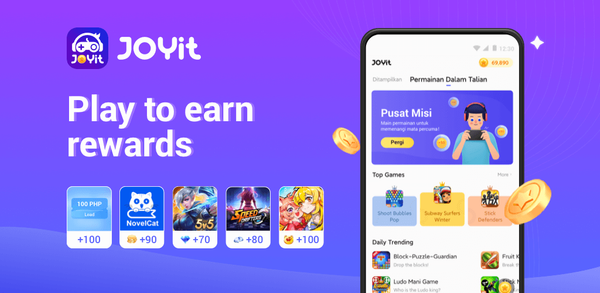Maximize your leisure time by learning how to play to earn rewards
Maximize your leisure time by learning how to play to earn rewards
Blog Article
Why Play-to-Earn Rewards Are Changing the Way You Play and Make
The development of play-to-earn models signifies a significant change in the video gaming landscape, inviting gamers to explore not just the amusement worth of games however additionally their potential as income-generating systems. This paradigm supplies diverse advantages, consisting of property ownership via blockchain innovation, which basically alters gamer interaction and investment. Nonetheless, as this design develops, it offers an unique set of challenges that can affect its sustainability and appeal. Understanding these dynamics raises essential inquiries about the future of pc gaming and the implications for both players and programmers alike.
Emergence of Play-to-Earn Designs
In current years, the video gaming sector has experienced a substantial improvement with the emergence of play-to-earn models, essentially changing how players involve with digital environments. This ingenious strategy allows players to acquire substantial incentives through their in-game activities, producing a change from conventional gaming paradigms where pleasure and competitors were the main motivations.
Play-to-earn models utilize blockchain technology and non-fungible symbols (NFTs) to provide gamers with ownership of in-game properties, which can be traded or cost real-world currency. As an outcome, gamers are incentivized to spend time and effort right into games, cultivating a sense of agency and economic opportunity. play to earn rewards. This change has attracted a varied player base, including those who may have formerly viewed video gaming as a totally recreational task
A number of platforms have actually arised, showcasing successful implementations of this version, such as Axie Infinity and Decentraland. These platforms have not just created substantial income but likewise stimulated conversations around the sustainability and ethics of such economic systems. As play-to-earn designs remain to advance, they promise to redefine the connection in between players, programmers, and the broader digital economic climate, leading the way for a new period in video gaming.
Benefits for Players
As players engage with play-to-earn designs, they open a variety of advantages that prolong beyond mere home entertainment. One of one of the most significant advantages is the potential for monetary benefits. Unlike standard video gaming, where players invest money and time without concrete returns, play-to-earn systems enable players to make copyright or in-game properties that can be transformed to real-world worth. This financial incentive not just enhances engagement yet also fosters a feeling of ownership over the video gaming experience.
Additionally, play-to-earn versions advertise neighborhood structure among gamers. Gamers frequently work together to accomplish shared objectives, thereby cultivating social connections that enhance the general experience. This feeling of area can lead to cooperative gameplay, where players share strategies and resources, boosting both personal and team achievements.
Additionally, these models can equalize accessibility to pc gaming by allowing gamers from varied economic backgrounds to benefit economically. By taking part in play-to-earn ecosystems, individuals can obtain abilities and expertise about blockchain innovation, further widening their job opportunities in the blossoming digital economy. Inevitably, the advantages for gamers prolong well beyond gameplay, influencing their social, financial, and academic landscapes favorably.
Difficulties in the Ecological Community
While the play-to-earn community provides significant possibilities, it is not without its obstacles. Fluctuations in value can discourage possible players who look for steady revenue streams.
One more challenge is the threat of scams and deceptive plans that can plague the ecosystem. Players might run into deceitful systems assuring high benefits but eventually bring about financial loss. Ensuring trust and safety and security is critical for the long-lasting practicality of play-to-earn versions.
Additionally, the environmental impact of blockchain video gaming can not be ignored. The power intake connected with mining and purchase handling raises moral inquiries concerning sustainability. Video game developers must find a balance between gratifying players and reducing environmental footprints.
Lastly, the regulatory landscape is still advancing, posing potential risks for programmers and gamers alike. Uncertain lawful frameworks can prevent innovation and restrict the development of play-to-earn environments. Attending to these difficulties is necessary for recognizing the full potential of this transformative pc gaming standard.
The Duty of Blockchain Technology
Blockchain innovation functions as the foundation of the play-to-earn ecological community, resolving much of the challenges formerly described. By utilizing decentralized journals, blockchain makes sure transparency and safety and security in purchases. Players can with confidence make and trade in-game assets, recognizing that ownership is verifiable and exempt to adjustment.

Tokenization of possessions plays an important function, granting players real ownership of their in-game items, which can be acquired, marketed, or traded on different marketplaces. This urges a vivid secondary market, where gamers can monetize their abilities and time bought the game.
In addition, blockchain modern technology makes it possible for interoperability between different games and systems, enabling gamers to carry their possessions throughout various environments. This flexibility not just improves customer experience yet additionally advertises an extra inclusive pc gaming environment, eventually improving the landscape of video gaming and earning.
Future Fads in Video Gaming
The pc gaming market is on the verge of a transformative advancement, driven by emerging modern technologies and changing player find more expectations. As play-to-earn designs gain grip, gamers are increasingly seeking immersive experiences that mix home entertainment with concrete incentives. This change is prompting developers to innovate, concentrating on developing interesting gameplay that fosters community and interaction.
One noteworthy pattern is the combination of digital reality (VR) and increased truth (AR), boosting the pc gaming experience by giving deeper immersion and interactive atmospheres. Furthermore, innovations in artificial knowledge are making it possible for a lot more advanced non-player characters (NPCs) and adaptive gameplay, customizing experiences to individual gamer choices.

Conclusion
In conclusion, the play-to-earn model Recommended Reading is considerably transforming the gaming landscape by enabling gamers to obtain real-world value from their in-game activities. This standard shift not just boosts player engagement and investment yet likewise raises obstacles that need to be dealt with to make sure sustainability within the ecological community. As blockchain innovation remains to facilitate possession of electronic possessions, the future of gaming guarantees further technology and chances for players across varied histories.
Report this page